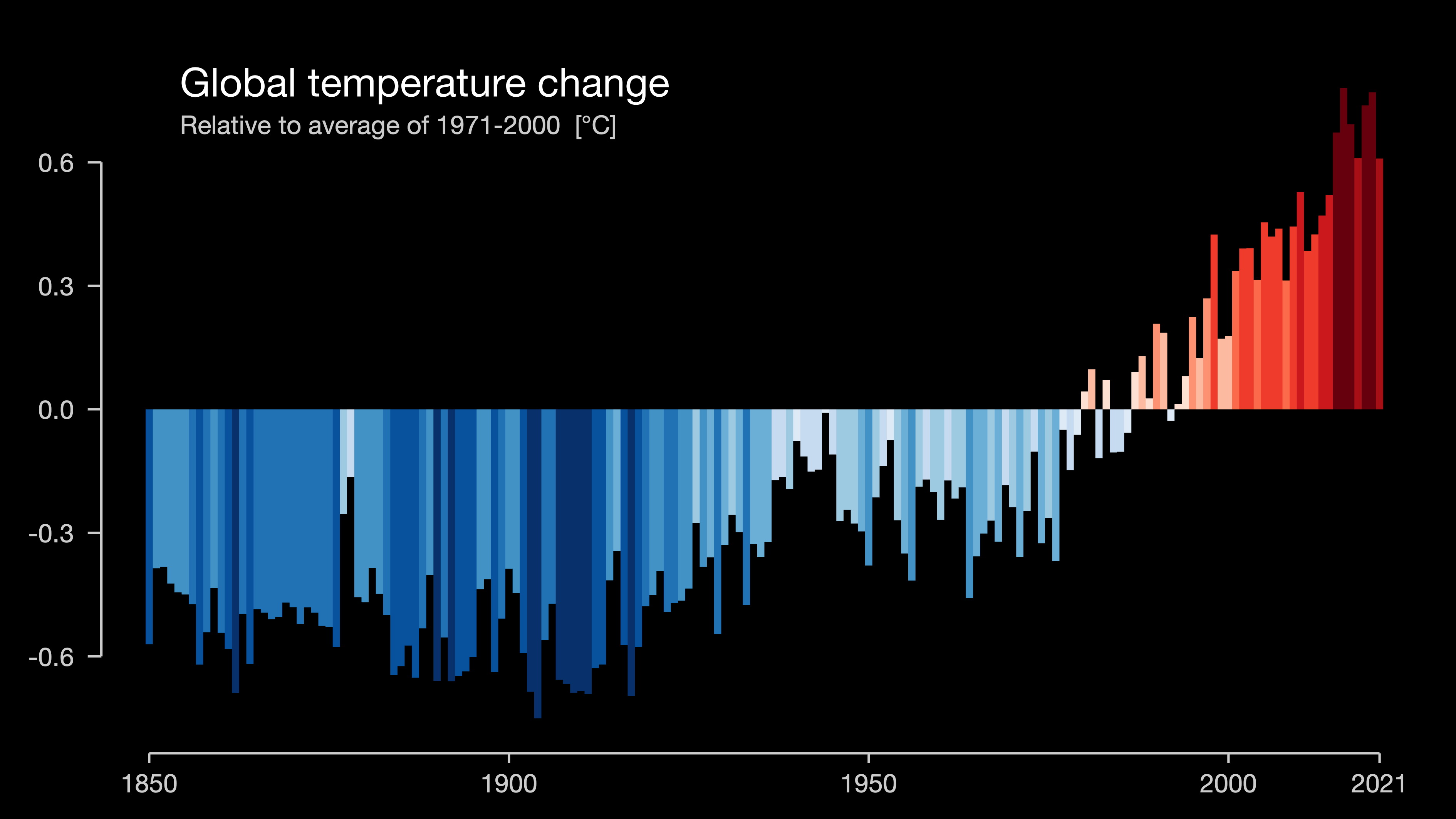

Heat waves are becoming more intense because of the rise in global temperature, which has devastating effects on landscapes, ecosystems and even the human body.
A graphic created by Professor Ed Hawkins, a climate scientist at the National Center for Atmospheric Science at Reading University, shows all the changes in global temperature since 1850.
It is made up of billions of individual measurements of a thermometer made by tens of thousands of people. Each of the 172 colored stripes signifies one year.
After 1970, there is a “rapid change in color” from oranges to dark reds “highlighting how quickly things have changed over the last 40 or 50 years,” Hawkins previously told CNN.
“The consequences in a warmer world are more extreme heat waves. As the temperatures increase, heat waves get hotter and in many regions that will be increase risk of wildfires, especially for areas getting dryer,” Hawkins said.
Raging wildfires have scorched thousands of hectares of forest in France and Spain, while Britain is set to face its hottest day on record amid a searing heat wave on Monday.
Sweltering temperatures in Portugal this week have exacerbated a drought that started before the heat wave, according to data from the national meteorological institute. About 96% of the mainland was already suffering severe or extreme drought at the end of June.
But the global rising of temperatures and heat waves don’t affect all parts of the world the same. Data shows the planet is warming fastest in the Arctic and in the northern latitudes it is warming faster over land that in the ocean.
“There’s no threshold at which things go from safe to being disastrous. Things just get worse as the temperature increasing,” Hawkins said.
Global impacts: As temperatures rise, so does the likelihood of climate migration as people flee regions that are too hot to live in. Heat is also felt more intensely in urban centers because of the lack of green spaces. Scientists say buildings and concrete absorb the sun’s energy and then radiate heat, as opposed to parks and grassy areas that absorb less.
“It’s very important to put in place adaptations like nature-based solutions and cooling and action plans for heat waves,” Chloe Brimicombe, an environmental climate science PhD researcher at the University of Reading, previously told CNN.
Some of the cooling systems like air conditioning are actually driving energy demands, which for most countries, mans an increase in fossil fuels, according to the International Energy Agency. This same fossil fuel usage and subsequent greenhouse gas emissions is also a main contributor to climate change — one of the reasons why global temperatures are warming so quickly.
“If we want to stabilize the planets temperature, to help global warming, then we need to reduce our emissions to net zero,” Hawkins said.
Net zero emissions can be achieved by removing as much greenhouse gas from the atmosphere as what’s emitted, so the net amount added is zero. To do this, countries and companies will need to rely on natural methods — like planting trees or restoring grasslands — to soak up carbon dioxide (CO2), the most abundant greenhouse gas we emit, or use technology to “capture” the gas and store it away where it won’t escape into the atmosphere.
“The future is in our hands. our choices over the coming decades will determine how warm the planet will get,” he added.
Watch: All the changes in global temperature since 1850
